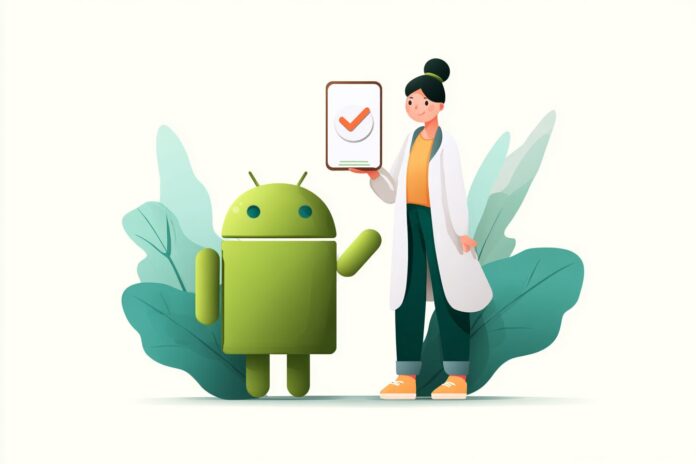Strengthening Android Security: A New Chapter
Android, the world’s most widely used mobile platform, is stepping into a new era of security. Most importantly, Google plans to enforce mandatory identity verification for all app developers. This initiative not only targets apps distributed via the Google Play Store but also those available outside of it, thereby addressing a long-standing vulnerability in the ecosystem.
Because the threat of malware has evolved alongside technological advancements, Google has opted to overhaul the existing security framework. By ensuring every developer is verified, the company aims to dramatically reduce malicious activities and financial fraud. Therefore, the new policy is set to reinforce user trust and foster a safer digital environment for billions of Android users.
The Rationale Behind Mandatory Developer Verification
Over time, the Android ecosystem has been plagued by a surge in malware-related incidents, particularly in apps installed from third-party sources. Because recent studies indicate that malware is over 50 times more prevalent when apps are sideloaded, Google is determined to address this gap in security.[1] Most importantly, the initiative is set to eliminate the anonymity that previously allowed malicious actors to operate without accountability.
In addition to curbing fraudulent activities, this measure also aims to empower users with clear, reliable information about the origin of the apps they install. Because the verification process ties every app to a verified developer, users can confidently navigate the vast array of available applications without fearing hidden threats.
Implications for Developers: What to Expect
Developers who have relied on third-party distribution methods will notice significant changes beginning in March 2026. Early access to the new system will be available from October 2025 in select markets such as Brazil, Indonesia, Singapore, and Thailand, with a global rollout expected in 2027.[5] Therefore, developers must prepare by gathering necessary identity documents required during verification.
Because the existing Google Play Console already facilitates identity checks for apps on its platform, a parallel system called the Android Developer Console is being introduced for developers outside the traditional store. Besides that, there is a dedicated account type for student and hobbyist developers, ensuring that various segments of the development community are accommodated and supported.[3]
How the Verification Process Enhances Security
The verification process focuses solely on the developer’s identity rather than the content of the app. Most importantly, this approach is comparable to an airport security check where identification is key without delving into the specifics of personal luggage.
Because Google Play Protect will continue to actively scan apps for malware, the addition of developer identity verification acts as an extra layer of defense. Therefore, while apps can still be sideloaded, the accountability tied to every published app ensures that malicious software is significantly harder to deploy. Transitioning to this system means that every piece of software on Android can be traced back to a trusted source, thereby increasing overall ecosystem security.
The Broader Impact on the App Distribution Ecosystem
This new verification process is more than just a security protocol—it is a paradigm shift for the entire app distribution ecosystem. Most importantly, it eliminates the era of anonymous app listings, making it harder for bad actors to distribute malware or scams without detection.
Because Android will maintain its open-platform approach that supports sideloading and third-party app stores, the emphasis remains on openness without compromising security. Therefore, developers have the freedom to innovate while being held accountable for their actions. Early reports from industry experts suggest a reduction in malicious app submissions and heightened trust among users, which is a win-win for everyone involved.
User Benefits and Industry Endorsements
For Android users, the benefits are clear. Most importantly, the move dramatically enhances ecosystem trust and safety. Because even apps coming from outside the official Play Store must now originate from a verified developer, users are less likely to encounter fraudulent or harmful software.
Besides that, governments and industry leaders are already voicing strong support. For example, Brazilian banking authorities have hailed this policy as a “significant advancement” in digital security, while digital ministries in Southeast Asia appreciate the alignment with their public safety strategies. Consequently, this global endorsement reinforces the policy’s potential impact in safeguarding digital spaces worldwide.[2]
Strategies for Publishers Amid These Changes
For publishers, early adaptation is crucial. Because the new mandate will affect all app distribution channels, publishers should begin updating their response strategies immediately. Therefore, ensuring that all identity documents and developer credentials are up-to-date becomes essential for uninterrupted app distribution.
Most importantly, educating teams and stakeholders about these changes will help streamline the transition. Furthermore, aligning with best practices recommended by Google through official resources, such as the Android Developers Blog, can ease the adjustment phase. In this way, publishers not only comply with new regulations but also foster a culture of transparency and security.
A Safer Future for Android: Looking Ahead
Google’s developer verification initiative marks a pivotal moment in mobile security. Most importantly, by balancing robust identity checks with the ethos of an open platform, the policy creates a baseline of accountability that benefits both developers and users alike.
Because the vast majority of malware originates from unverified sources outside the official Play Store, this initiative addresses a critical vulnerability in the Android ecosystem. Besides that, readers can look forward to continued updates from Google as new guidelines and documentation are released. Ultimately, this proactive approach ensures that billions of users can enjoy a safer and more trustworthy mobile environment.
References
- TechCrunch: Google will require developer verification for Android apps outside the Play Store
- Onsite Computing: Google to verify all Android devs to block malware on Google Play
- Android Authority: Google wants to make sideloading Android apps safer by verifying all devs
- Bleeping Computer: Google to verify all Android devs to block malware on Google Play
- Android Developers Blog: Elevating Android Security



